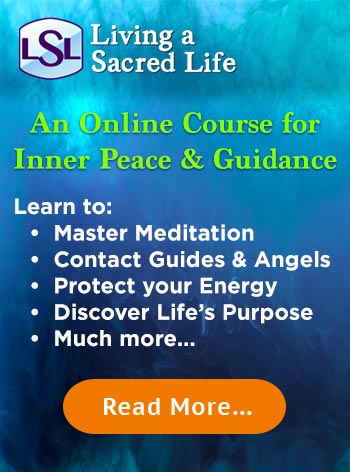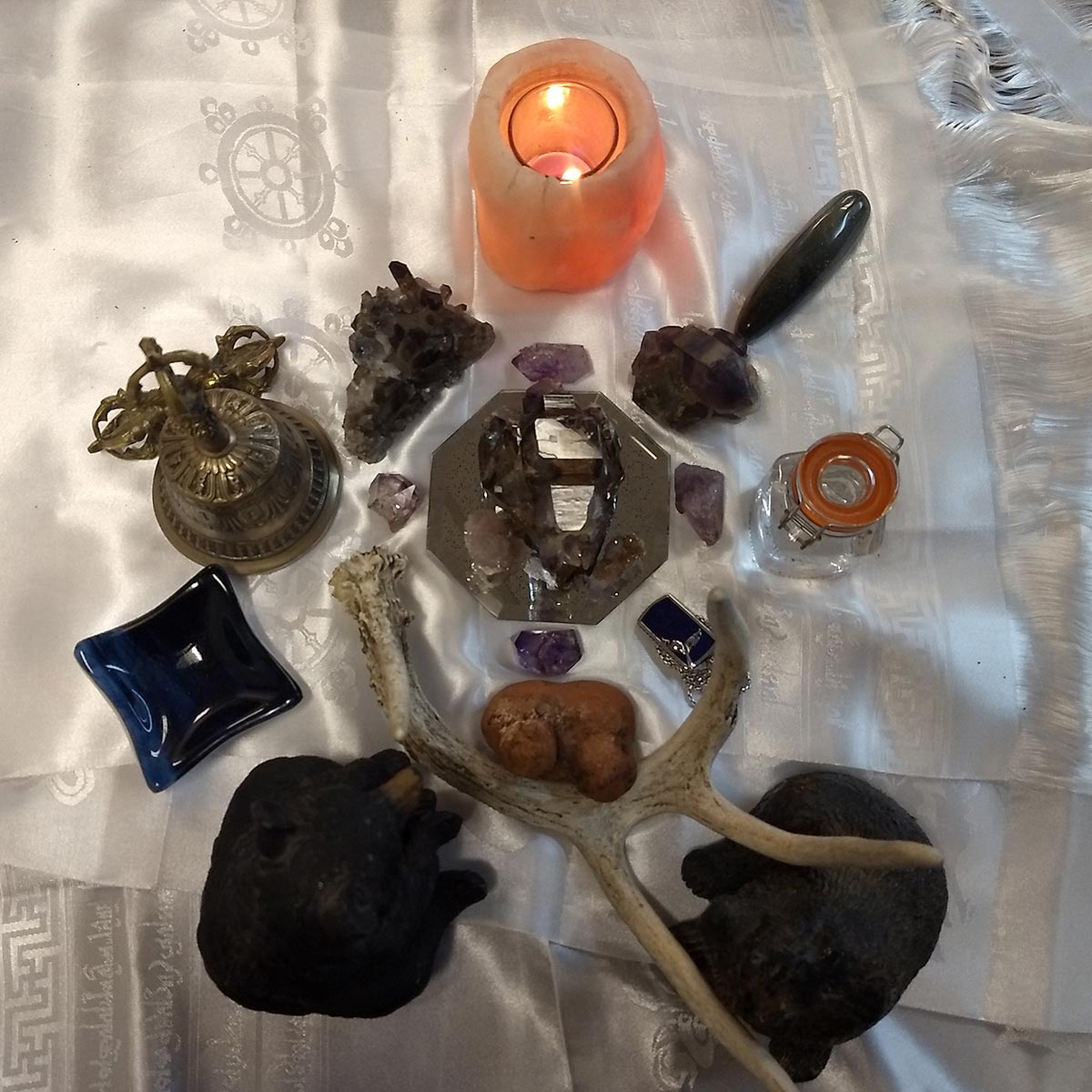There is no denying the importance of a coach in one’s journey toward self-improvement—whether in a professional or personal context. The right coach has the power to propel you to heights you never imagined possible. But in the sea of coaches offering their services, the task of finding the right one can feel daunting. This guide aims to demystify this process, offering you a comprehensive, step-by-step approach to finding the coach that fits your needs perfectly.
Contents
The right coach can ignite change, inspire innovation, and instigate success.
Before we delve into the specifics, if you’re still trying to decide if coaching is right for you, consider reading this article, “Is Coaching Right for You? A Comparison with Other Personal Growth Modalities.” If you’d like a more comprehensive understanding of what coaching is, read “Coaching is Awesome When You Know What It Is.”
Now, let’s take a moment to understand why finding the right coach is so crucial. Below, find three of the most compelling reasons:
- Alignment with your goals: No two individuals have the exact same goals, dreams, or stumbling blocks. A coach that’s right for someone else might not be right for you. The key is to find a coach who understands, respects, and aligns with your unique objectives.
- Expertise: A coach’s expertise in your area of interest is vital. Their wealth of knowledge and experience can save you from common pitfalls and guide you on the fastest route to success.
- Chemistry: The relationship between you and your coach is a deeply personal one. Having good chemistry with your coach can significantly enhance the effectiveness of the coaching process.
An essential part of finding the right coach involves articulating what you hope to achieve. This clarity will not only assist you in the selection process, but it will also provide your prospective coach a clear picture of your aspirations and expectations, making the coaching relationship more productive from the get-go.
Knowing what you want is the first step toward getting it.
This guide will walk you through the process of identifying your coaching needs, researching potential coaches, evaluating their expertise and coaching style, and finally making your choice. But remember, the search for the right coach is as much a journey of self-discovery as it is a quest for the perfect guide.
Understand Your Coaching Needs: Defining Your Goals and Objectives
It is my firm belief that understanding your coaching needs is the cornerstone of finding the right coach. To embark on this journey, it’s necessary to take a step back and thoroughly examine your personal or professional life. The aim of this introspection is to identify areas that require improvement, growth, or transformation. This process, however challenging it might be, is unequivocally the first step toward defining your coaching goals and objectives.
Identifying Your Needs
The act of identifying your needs can often feel like a herculean task. There’s an array of dimensions to consider, from improving specific skills (like public speaking or leadership) to broader aspects (such as personal growth or career advancement). You might be looking for a coach to help with a specific project, or perhaps you want to work on your overall personal development. The spectrum is wide, but the key lies in specificity. The clearer and more specific your goals, the easier it will be to find a coach whose expertise aligns with your objectives.
- Identify areas of improvement: Start by listing areas of your life or work where you believe you could improve. This could be anything from leadership skills to time management, from stress management to communication skills. The process of writing these down can often lead to a greater understanding of what you’re truly seeking.
- Define specific goals: Once you’ve identified areas of improvement, it’s time to translate them into specific, measurable, attainable, relevant, and time-bound (SMART) goals. These goals give you a clear path to follow and make it easier to track progress over time.
- Consider your timeframe: Coaching isn’t a quick fix solution. It requires time and commitment. Therefore, you need to consider your timeframe. Are you looking for a short-term engagement to navigate a specific challenge or a long-term relationship to support ongoing growth?
The more specific and realistic you are about your coaching needs, the better your chances of finding the coach who is the perfect fit for you.
In my experience, I’ve found that thinking about these factors in advance greatly facilitates the process of finding the right coach. Once you’ve defined your coaching needs, you’re then ready to start researching potential coaches, a critical step that we will delve into in the next section.
Knowing the Different Types of Coaching: Which One Suits You Best
As we begin this journey towards finding the right coach, it is essential first to understand the various types of coaching that exist. This understanding will not only narrow down your search but also ensure you find a coach that aligns with your specific needs. Coaching, in its broadest sense, can be categorized into several types, each addressing different aspects of personal and professional development. Let’s delve into these distinct types and explore their unique characteristics and benefits.
Life Coaching
Life coaching, as the term suggests, is about helping individuals navigate different stages and challenges in their lives. From setting personal goals (like achieving work-life balance or improving interpersonal relationships) to dealing with major life transitions (like moving to a new city or starting a new career), a life coach provides guidance, support, and motivation. If you’re feeling stuck in life or are on the precipice of a significant change, a life coach could be your ideal choice.
Career Coaching
Career coaching is a more focused type of coaching that specifically targets professional development. Whether you’re struggling with job satisfaction, seeking a career change, or aiming for a promotion, a career coach can provide valuable insights and strategies. They can help you understand your professional strengths and weaknesses, develop a career plan, and enhance your job search and interview skills. If your needs revolve around career advancement or change, a career coach is likely the best fit.
Executive Coaching
Executive coaching is designed to elevate the leadership skills of individuals in managerial or executive roles. An executive coach can help address challenges such as managing teams, improving communication, strategic decision-making, and enhancing overall leadership capabilities. If you’re an executive looking to improve your leadership skills or a manager aiming for a leadership role, an executive coach could be your perfect match.
Health and Wellness Coaching
Health and wellness coaching focuses on improving physical and mental well-being. A health and wellness coach aids individuals in setting and achieving health-related goals like weight management, stress reduction, and adopting healthier lifestyles. If you’re looking to make significant health changes or need motivation to maintain a healthy lifestyle, a health and wellness coach can provide the necessary guidance and support.
Spiritual Coaching
This is an area that is similar to life coaching but more targeted to one’s personal spiritual dimension, the relationship with God, Jehovah, the Creator, Tunkashila, life itself, or what I like to call the Creative Force of the Universe (CFU). This relates to the idea that there is a soul from which you draw from to have your life experience as both a self, and as part of a one life, a group consciousness so to speak. Clarifying this relationship and know your purpose can create deeper meaning in your life, especially when your goals in the everyday world are not that lofty. You may be someone who’s spiritual purpose is the highlight in this incarnation.
If understanding your purpose is of interest, you may consider reading “Understanding Your Soul’s Purpose In Life.”
If it’s paramount, consider this course, Awakening to Your Soul’s Purpose on LivingaSacredLife.com.
You can even get a Soul’s Purpose Astrology Reading.
To really understand the concept of the soul, read “The Facets of The Soul From Many Spiritual Traditions.”
Ontological Coaching
On a personal note, although I’ve broken down in the preceeding the most fundamental forms of coaching, I can’t overemphasize Ontological Coaching. This is at it’s core a study of our intrinsic sense of beingness. If you have a strong and well developed sense of being it superceeds any other form of coaching and puncuates Spiritual Coaching. A proficient ontological coach can help you with any other form of coaching and does not require expertise in any domain. If you’re interested in discussing this further, please reach out.
Now that we have explored the different types of coaching, it’s important to remember that the right coach for you depends on your unique situation and goals. Each type of coach brings a unique skill set, and it’s essential to align those skills with your specific needs. Consider what you hope to achieve through coaching, and use that as a guidepost in your search.
If you’d like a more comprehensive list of different types of coaching read, “Reviewing the Best Domain of Coaching For You.”
In the next section, we will delve into the actual process of researching potential coaches. This will involve investigating their credentials, evaluating their coaching style, and determining if they are the right fit for you. Stay tuned!
Researching Potential Coaches: Where to Look and What to Look For
As an advocate of continuous personal and professional growth, I firmly believe that finding the right coach can be a transformative experience. However, the process of researching potential coaches (a critical step in your journey) can be overwhelming, especially if you’re not sure where to look or what to look for. But never fear, I’m here to guide you through this process.
Where to Look
Firstly, there are several places where you can start your search for a potential coach. In the digital age, the internet is your best friend for this purpose. There are numerous online platforms, such as LinkedIn and professional coaching directories, where you can find profiles of professional coaches. You can also look into coaching organizations and institutions that provide lists of certified coaches (a certification can be a good indicator of a coach’s qualifications). If you prefer a more personal approach, consider asking your network – friends, colleagues, or mentors – for recommendations. These personal referrals can often lead to coaches who have a proven track record and are trusted by individuals you respect.
What to Look For
Once you’ve compiled a list of potential coaches, the next step is to evaluate each one based on a set of criteria. These criteria should reflect your unique coaching needs and expectations. Here are some key areas to consider:
- Experience and Expertise: Look into the coach’s background. What is their experience in the field you’re seeking coaching in? Do they have a proven track record of success? Their professional experience can be a testament to their expertise.
- Coaching Philosophy: This refers to the coach’s approach to coaching. Does it align with your values and goals? It’s important to find a coach whose philosophy resonates with you.
- Coaching Style: Every coach has a different style. Some may be more directive, giving you advice and strategies, while others may be more reflective, helping you to find your own solutions. Understanding a coach’s style can help you determine if you would work well together.
- Feedback from Previous Clients: Reviews or testimonials from previous clients can give you an idea of the coach’s efficiency and effectiveness. However, remember that everyone’s coaching needs are different, so what worked for others might not work for you.
In a nutshell, the process of researching potential coaches involves knowing where to look and understanding what to look for. It’s a journey of discovery that requires patience and perseverance, but rest assured, it’s worth every step when you finally find that coach who can propel you towards your goals.
Evaluating Coaches’ Credentials: Experience and Certifications
From my personal experience and teachings, it’s essential to understand that the right coach’s search shouldn’t be a haphazard process. Instead, it should involve a meticulous evaluation of potential coaches’ credentials, including their experience and certifications. This step is crucial as it can significantly influence the effectiveness of your coaching journey.
Personal Experience
Experience, undoubtedly, is a significant factor. It’s often said that experience is the greatest teacher, and this couldn’t be more true in the case of coaching. A coach’s experience can provide a rich tapestry of insights, wisdom, and practical solutions that are hard to match. But how can we evaluate a coach’s experience? Here are some pointers:
- Years of coaching: This is a simple yet important criterion. Generally, the longer a coach has been practicing, the more likely they are to have honed their coaching skills (although there might be exceptions).
- Client testimonials: These can be a goldmine of information about a coach’s effectiveness. Look for testimonials that speak to the coach’s ability to guide, inspire, and bring about change. Also, be cautious of overly generic or non-specific testimonials.
- Area of expertise: It’s crucial to find a coach who has experience in the area where you seek guidance. Whether it’s leadership, career transition, or life coaching, you want someone who understands the challenges and dynamics of that specific area.
Evaluating the Coach’s Certifications
Evaluating a coach’s credentials (experience and certifications) can be an insightful part of the coach-finding process. It’s about finding a balance between a coach’s practical wisdom gained through experience and the theoretical knowledge and credibility provided by certifications.
As someone who holds firm beliefs in the principle of ongoing learning, I must emphasize the importance of evaluating a coach’s certifications. In an industry inundated with professionals of varying skill levels and expertise, the presence of recognized certifications serves as a benchmark for quality and proficiency. It is an essential step in the process of finding your ideal coach.
However, not all certifications are created equal. It is paramount that you, as a potential client, understand the difference between a certified coach and a coach with a certification from a credible institution. The latter indicates advanced training and adherence to established coaching standards. So, how do you navigate this potentially confusing landscape?
- Understand the Certification Institutions: There are several recognized global institutions that offer certification to coaches, including the International Coach Federation (ICF), the European Mentoring and Coaching Council (EMCC), and the Center for Executive Coaching. Acquiring certification from these institutions involves rigorous training and assessments, thus ensuring a high level of expertise.
- Look for Advanced Certifications: Many seasoned coaches possess advanced certifications, such as the Professional Certified Coach (PCC) from ICF or Senior Practitioner from EMCC. These certifications require coaches to complete a significant amount of coach-specific training hours and demonstrate their coaching competency to a panel of experts.
- Evaluate the Relevance of the Certification: Not every certification is relevant to your coaching needs. For instance, a life coach certification may not be useful if you’re seeking a leadership coach. Always ensure that the coach’s certification aligns with your specific requirements.
Are Certifications Enough?
Furthermore, the reliance on certifications should not diminish the value of a coach’s experience. A combination of certification and experience (preferably in a field relevant to your needs) is often the most potent mix. In addition, personal traits such as empathy, listening skills, and strong ethics – although harder to measure – are invaluable.
Remember, the ultimate objective is to find a coach who can guide you towards achieving your goals. Their certification is just one piece of the puzzle. It’s a significant piece, no doubt, but just one of many that need to fall into place. Feel empowered to ask prospective coaches about their qualifications and how their skills and experience are relevant to your needs. After all, the purpose of this exercise is to ensure that you find not just a certified coach, but the right certified coach for you.
Setting Up an Initial Consultation: Interviewing Potential Coaches
Embarking on the journey of finding the right coach can be quite daunting, but the initial consultation or interview phase is the ideal opportunity to narrow down potential candidates. This is where we can really delve into their expertise, coaching style, and overall compatibility with our needs and preferences.
Firstly, it’s worth noting that the initial consultation is not merely for the coach to assess you, but more importantly, for you to assess the coach (yes, the ball is in your court). This is your chance to ask pertinent questions and gauge whether you find a resonance with their coaching philosophy and style.
Preparing Questions for the Consultation
Before setting up an interview, it’s essential to prepare a list of questions that can help evaluate the potential coach. These could range from their qualifications and experience to their coaching style and methodology. I personally recommend focusing on the following areas:
- Experience and Qualifications: Ask about their background, years of experience, and any relevant degrees or certifications. It’s also worthwhile to inquire about any specialized training they have undergone.
- Coaching Philosophy and Methodology: This gives you a glimpse into their approach to coaching. Ask them to explain their coaching philosophy and methods they typically use in their sessions.
- Success Stories: Request them to share some success stories or testimonials from previous clients. This will give you an idea of the results they’ve been able to achieve and their areas of expertise.
- Expectations: Discuss what they expect from you as a coachee, and what you can expect from them as a coach. This could include commitment levels, mutual respect, and confidentiality, among other things.
I want to emphasize that you should do your due diligence before the interview and don’t ask about what has already been posted on the internet. Any coach worth their salt will have testimonials, reviews, domains of expertise, and coaching philosophy displayed online. Know what you don’t know and need to have answered to make your determination. A free consultation should not turn into a session in itself. Be courteous of their time.
Consider for yourself how to access your sense of knowing, your intuition, when speaking with the coach so that your sense of inner trust tells you whether to work with them or not. A good coach is not going to try to sell you their services. Determine if you sense that you’re being drawn in by catch phrases and feel-good affirmations.
The Interview Process
The consultation itself should be approached with an open mind and a clear understanding of what you want to achieve from the coaching. Remember, this is your opportunity to assess their ability to assist you in reaching your goals.
Note: While coaching credentials and experience are important, do not overlook the importance of personal chemistry. The most effective coaching relationships are built on trust and mutual respect.
During the interview, observe their communication style and how they respond to your questions. Do they listen intently or seem more interested in selling their services? Are they able to articulate their thoughts clearly and convincingly? Do they show empathy and understanding?
Finally, after the consultation, reflect on the interaction. Was the coach respectful and attentive? Did they inspire confidence? Were they curious about your aspirations and challenges? Most importantly, do you feel comfortable and optimistic about the prospect of working with them? If the majority of your answers are affirmative, then you may have found the right coach.
Making the Final Decision: Factors to Consider and Pitfalls to Avoid
As we navigate this complex yet rewarding process of finding the right coach, we now stand at a critical juncture – making the final decision. This stage, while exciting, can feel quite daunting. After all, the decision we make here could profoundly shape our personal or professional path. I’d venture to say, however, that this decision-making process need not be cause for stress or anxiety. Instead, it should be approached with a clear mind, a systematic thought process, and, most importantly, a firm understanding of the key factors to consider and the potential pitfalls to avoid.
Key Factors to Consider
The first factor to consider is the coach’s expertise and how well it aligns with your specific needs. A coach may come highly recommended and with an impressive track record, but if their area of expertise doesn’t align with your goals (be it professional development, health and wellness, or personal growth, etc.), the partnership might not yield the desired results. It’s like trying to fit a square peg into a round hole – it simply doesn’t work.
The second factor to consider is the coaching style. Different coaches employ different styles and methodologies, and it’s vital that their coaching style resonates with you. Some coaches may adopt a more directive approach, offering advice and solutions, while others may take a more facilitative approach, helping you to find your own answers. Understanding these differences (and your preference) will help you make an informed decision.
The final factor to consider, but by no means the least important, is the chemistry between you and your potential coach. Coaching is a deeply personal process that requires mutual trust, respect, and a good rapport. If the chemistry isn’t there, the coaching relationship might not be effective, regardless of the coach’s expertise or style.
Pitfalls to Avoid
Just as there are factors to consider, there are also potential pitfalls to avoid. The most common pitfall is rushing into making a decision. Finding the right coach is not a race. It’s a process that requires time, patience, and careful consideration. The second pitfall is to be swayed by flashy credentials or lofty promises. While credentials and testimonials can provide an idea about a coach’s capabilities, they are by no means a guarantee of their effectiveness. Always probe deeper.
Another common pitfall is not checking references. References can provide invaluable insights into a coach’s working style, effectiveness, and the type of results they have helped others achieve. So always ask for references and take the time to speak to them. Lastly, avoid the pitfall of not trusting your gut. I firmly believe that our intuition can often guide us in the right direction. If something doesn’t feel right, even if everything else checks out, it might be worth reconsidering.
In conclusion, making the final decision about your coach is undoubtedly a crucial step, but with the right approach and armed with these considerations, I trust that you will be well-equipped to make a choice that will serve your growth and development in the best possible way.
If you’re still trying to decide if coaching is right for you, consider reading this article,
“Is Coaching Right for You? A Comparison with Other Personal Growth Modalities.”











